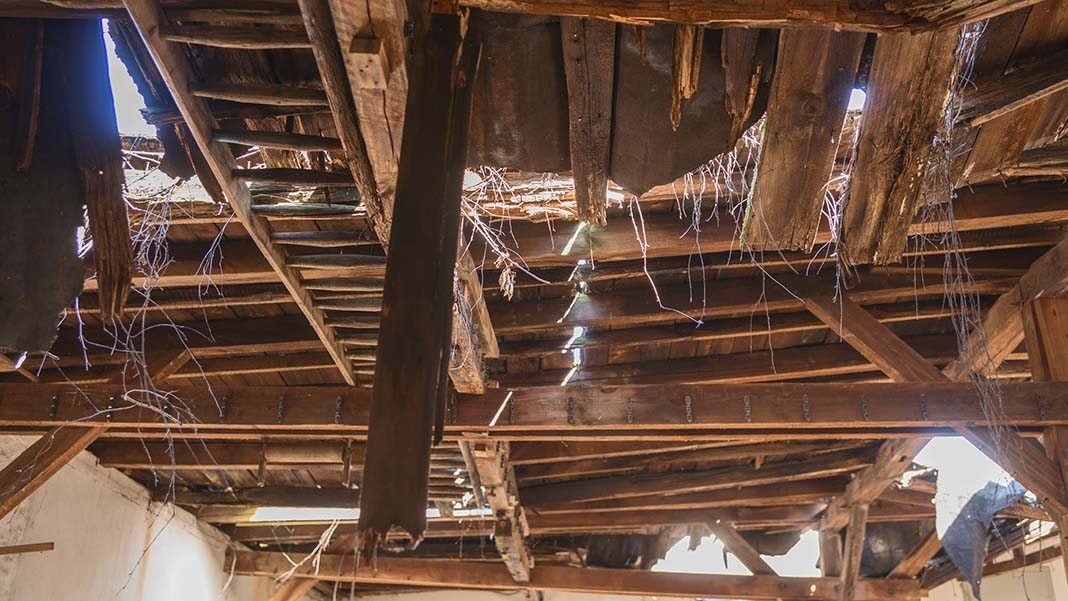What a Natural Disaster Could Mean for Your Business
By: SmallBizClub

Every year hurricanes do massive damage to the United States economy and cost the world an average of $300 billion. The damage is not simply limited to the cost of repairing homes, infrastructure, and other buildings. There are also huge intangible costs suffered by individuals and companies who are unable to produce their usual revenue because of the effects of a natural disaster.
Even though they are fairly predictable, hurricanes can cause enormous economic damage. This damage is compounded by the unpredictability of other natural disasters. On top of their human toll, tornados and earthquakes, even relatively minor ones, can have serious financial implications. Finally, disasters that rarely take a human life can be some of the most serious when it comes to economic impact. Droughts and floods are simply an inconvenience to many, but they can be the death of a business that’s underprepared.
Today we’re going to cover how natural disasters impact businesses and give you some ideas about how to prepare your business for a major disaster in your area.
How Natural Disasters Affect Business
The ways in which a natural disaster can upend your business are as expansive as many disasters themselves. Here are three means through which a natural disaster in your area can affect your business:
Public Infrastructure
Many owners and managers take public infrastructure for granted. Although it’s fun to complain about minor problems like potholes in roads and bridges that get too stuffed with traffic, virtually no company could operate without this infrastructure.
Unfortunately, damage to roads, bridges, train tracks, and even airports is inevitable in most natural disasters. This damage can have relatively minor effects on your business, forcing your delivery truck to take a longer route, or it can be catastrophic, cutting you off completely from your suppliers for a period of time.
Clients
During times of crisis, your usual clients will likely have a lot on their plates. They might either be too busy (or too financially burdened) to give you their usual patronage. If your business involves housing repairs or disaster cleanup, however, things are likely to be booming.
Company Assets
Public roads and bridges aren’t the only things that be damaged by a severe natural disaster. Your own office building, vehicle fleet, and equipment are all in danger as well. Additionally, company records, whether they’re on paper or disk, can be lost or completely destroyed in even a small disaster.
How to Prepare for a Natural Disaster
At this point you might be worried about how a natural disaster could affect your business. You should be. Boston University reports that 25% of businesses don’t reopen after a major disaster. However, this 25% is overwhelmingly populated by businesses that did not prepare. Here’s what you can do:
- Create an emergency response plan. Recovery is a pipe dream if you don’t make it through the disaster itself. Many natural disasters can sneak up on you, making it critical to have an emergency action plan to keep you and your employees safe.
- Use the cloud. There is simply no excuse to not be doing your bookkeeping in the cloud in this day and age. By storing your accounting information remotely you can know that it’s safe and continue to access it even if your hard copies are destroyed. This can be crucial for any business recovering from a disaster; you have no chance of filing a successful insurance claim or requesting federal aid if you can’t provide proof of how much money you need.
- Rebuild your community. If you do most of your business locally, then you can’t get back on your feet until your community is back on its feet. Try offering yourself and your company as a leader in the community to get things up and running again. Your warehouse workers don’t have anything to do because nobody is ordering anything? Send them out to start fixing up houses and removing junk from the roadways. Little things like this will not only get you back in business sooner, they’ll also establish you as a reputable company in the future.
- Find alternative ways of doing business. Just because you can’t do things the usual way doesn’t mean that your business has to be sitting high and dry. If aren’t doing great, you can try to make a few deliveries by foot or bicycle. If the phone lines are down, you can try to tap into your internet hardline and make make calls via wifi. Don’t give up just because you can’t stick to business as usual.
- Build a disaster fund. No matter how smoothly you glide through a natural disaster, you’re always going to need some amount of money saved up to put towards your rebuilding efforts. Always keep a rainy day fund for those really, really rainy days.
Natural disasters don’t have to be the end of the world for your business. By understanding what you’re up against and creating a plan to combat the challenges that you’re likely to face, you can come out on top when a natural disaster strikes your area.
 Author: Nick Cesare works at a local startup in Boise, ID. He’s interested in how businesses can rework themselves to be environmentally friendly and take charge of improving their own environmental communities. You can reach Nick @cesare_nick.
Author: Nick Cesare works at a local startup in Boise, ID. He’s interested in how businesses can rework themselves to be environmentally friendly and take charge of improving their own environmental communities. You can reach Nick @cesare_nick.
2915 Views














